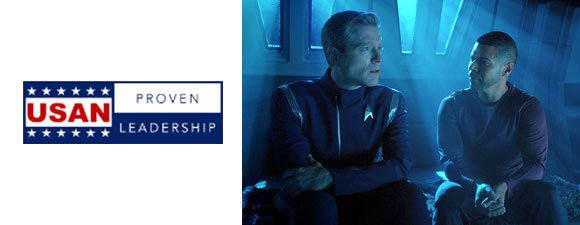Siddig: Trek and Religion
3 min readWhile promoting his latest film, Miral, which debuted in the US and UK last autumn, Alexander Siddig spoke about religion, the Israeli-Palestinian conflict and how Star Trek dealt with religion.
In Miral, Siddig plays the father of a Palestinian woman raised at the Dar Al-Tifel Institute after the death of her mother. Siddig chose to take part in the movie for two reasons. “Firstly it was to be directed by Julian Schnabel, an eminent director,” he said. “The second reason was that I thought the trouble in Israel had been going on so long that the reasons why the whole thing started in the first place had been forgotten by everybody. Arguments have a way of morphing over time. This film doesn’t outline all the reasons for the conflict in Israel but it does focus people’s attention on its origins. I thought that might be useful.”
 Siddig was well-aware of the Israeli-Palestinian conflict before starting the film. “I feel like I have lived with this conflict all my waking life,” he said. “Over the years I have formed many opinions and revised those opinions again and again. When I was younger, I had a simple view, I could perceive a simple injustice and it made me angry, reasons weren’t too important. As I have grown older and read more and talked to people who live there, I have noticed how nuanced it has become. How so many layers of bitterness have been added.”
Siddig was well-aware of the Israeli-Palestinian conflict before starting the film. “I feel like I have lived with this conflict all my waking life,” he said. “Over the years I have formed many opinions and revised those opinions again and again. When I was younger, I had a simple view, I could perceive a simple injustice and it made me angry, reasons weren’t too important. As I have grown older and read more and talked to people who live there, I have noticed how nuanced it has become. How so many layers of bitterness have been added.”
Working on Miral made Siddig realize that, “In the case of Israel, I can only imagine that no one realized that the Palestinians would be the problem they became, that they would be so hard to eradicate or assimilate.” Siddig feels that the original intent of forming a Jewish state was flawed. “The more I think about it now the more I understand that the idea of a Jewish state for Jews only is as unachievable and preposterous as Australia becoming uniquely Aboriginal or America a country designated to house only its native inhabitants. It’s a silly idea.”
When asked if he found it problematic that Star Trek didn’t have any clear Arab or Muslim characters, Siddig explained why it was not an issue for him. “I don’t think my futuristic utopia would define people by their religions and I don’t think Gene Roddenberry would have either. However, Deep Space Nine attempted to talk about the problems of religious extremism by introducing the Bajorans and their struggles.
“Bashir may have been Arab by descent but it was important to me and the producers that he wasn’t defined by this; people all over the world should be defined by their actions or deeds, their words or their art but not by philosophies that they had no hand in developing. That is disingenuous. If we are lucky enough to give birth to a baby, we can look forward to seeing what kind of man or woman he will become, we can’t decide ahead of time who that baby is going to be, what defines him, and yet this is what we do and it’s not fair to the baby who may grow up not wanting to be particularly Jewish or Arab, for example.
“Star Trek is blissful because it doesn’t deal in this kind of currency. Maybe by the time the 25th century rolls around we may have been able to ‘get over ourselves.'”






